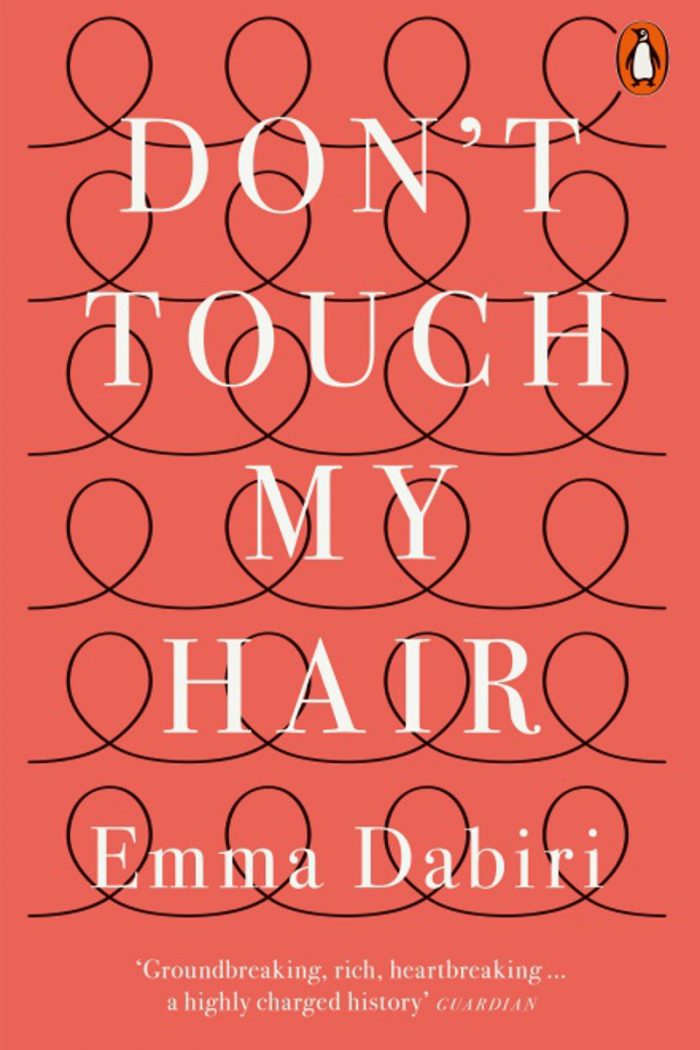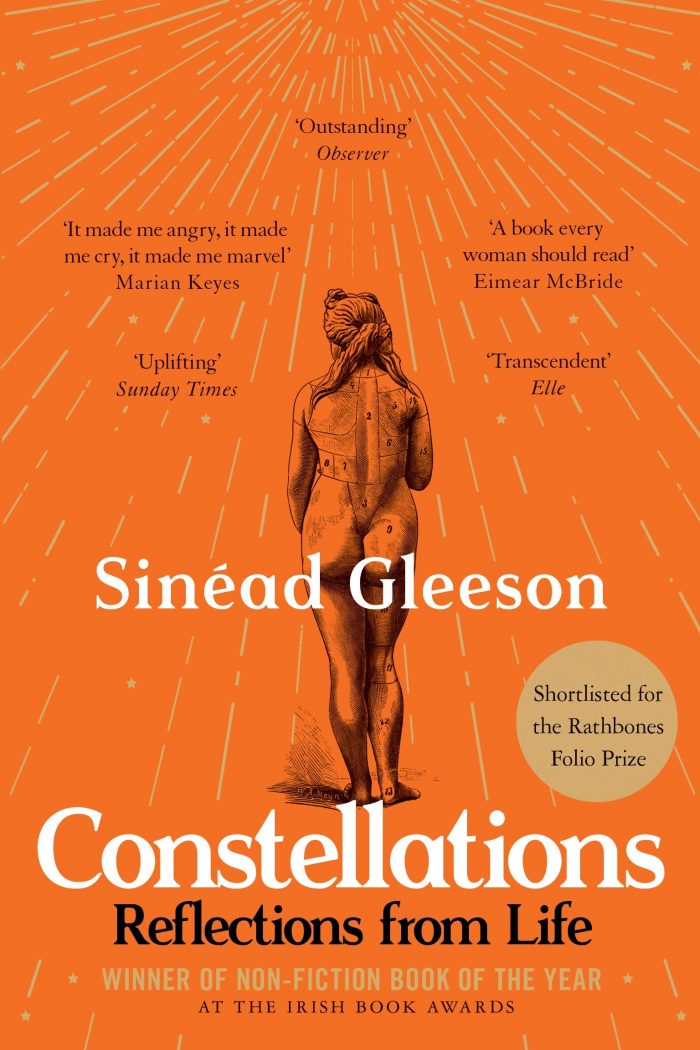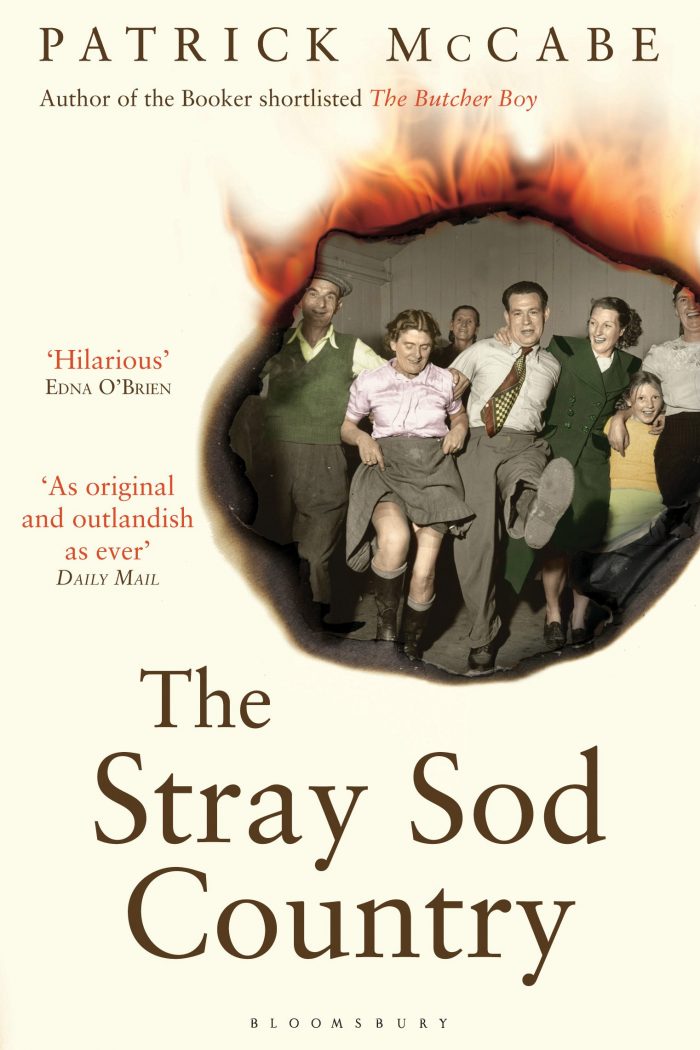
Don’t Touch My Hair
Emma Dabiri
2019 • Penguin Books
I am very aware of my complexion. I have written about it and colourism extensively. I always write from my own position and am always explicit about what that is. We also need to have a diversity of black voices. It would be a problem if it was only light-skinned people who were writing books, but what’s so exciting about now is [that] we are seeing the diversity of black voices in publishing.
— Emma Dabiri
Don’t Touch My Hair
Emma Dabiri
2019 • Penguin Books
I am very aware of my complexion. I have written about it and colourism extensively. I always write from my own position and am always explicit about what that is. We also need to have a diversity of black voices. It would be a problem if it was only light-skinned people who were writing books, but what’s so exciting about now is [that] we are seeing the diversity of black voices in publishing.
— Emma Dabiri
Description
From women’s solidarity and friendship to forgotten African scholars and the dubious provenance of Kim Kardashian’s braids, the scope of black hairstyling ranges from pop culture to cosmology, from prehistoric times to the (afro)futuristic. Uncovering sophisticated indigenous mathematical systems in black hairstyles, alongside styles that served as secret intelligence networks leading enslaved Africans to freedom, Don’t Touch My Hair proves that far from being only hair, black hairstyling culture can be understood as an allegory for black oppression and, ultimately, liberation.
Excerpts
Interviews
- Journal.ie: ‘Growing up Irish and Black: “It was the attention my hair provoked – it wasn’t good attention.”’
- Vogue: ‘“There’s a Commitment to Convincing us our Hair is Inferior, and it’s Rubbish”: Emma Dabiri is Changing the Conversation Around Afro Hair.’
- gal-dem: ‘We Had Our Hair Braided with Emma Dabiri to Talk About her New Book “Don’t Touch My Hair”’
- Grazia magazine: ‘From Blue Ivy to Kim Kardashian’s Braids, Here’s Why Black Hair will Never Be Just Hair.’
- Irish Independent: ‘Emma Dabiri: The Diaspora Diva on Trolls, Modelling, and Growing up Black in Dublin.’
- Dazed Digital: 'Emma Dabiri in Conversation about her New Book Don't Touch my Hair'
Prizes & Awards
Reviews
- Charlie Brinkhurst Cuff, The Guardian
- Colin Grant, The Guardian
- Kit de Waal, The Irish Times
- Patricia Yaker Ekall, The Times Literary Supplement
- Liz Dexter, Adventures in Reading, Running and Working from Home Blog
Audio
- International Literature Festival Dublin: Don't Touch My Hair - Emma Dabiri & Reni Eddo-Lodge
- The Blindboy Podcast: Emma Dabiri
- Ctrl Alt Delete: #201 Emma Dabiri - Don't Touch My Hair
- The Pat Kenny Show: Emma Dabiri - Don't Touch My Hair
- Weekend Breakfast with Alison Curtis: Emma Dabiri on her New Book 'Don't Touch My Hair'
Video
- Penguin Books UK: Don’t Touch My Hair - An Interview with Emma Dabiri
- Penguin Books UK: Emma Dabiri in Conversation with Jay-Ann Lopez & Trina Charles
- Penguin Books UK: Why Black Hair is Still Stigmatised, Emma Dabiri.
- Channel 4 News: ‘Untold Damage has been Done in the Name of Race,’ An interview with Emma Dabiri
- Manchester International Festival: Emma Dabiri in Conversation with Charlie Brinkhurst-Cuff
- Sotheby's: Emma Dabiri on Natural Hair in African Art
- RTÉ: Emma Dabiri on the Natural Hair Movement
- RTÉ: Emma Dabiri on Growing up as a Young Black Girl in Dublin








